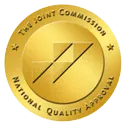Nonprescription medications, commonly known as over-the-counter (OTC) drugs, serve to address mild ailments or alleviate common symptoms such as mild pain, cold, cough, diarrhea, constipation, acne, and more.
This category encompasses not only OTC drugs but also what are known as “behind-the-counter” drugs. While not strictly prescription-based, these medications are typically handled and dispensed with increased care and security compared to standard OTC drugs.
Both types of medications can be easily obtained from pharmacies without the need for approval from a healthcare provider.



